The Birth of Richland Mall
The Richland Mall opened in 1969 in the heart of Ontario, Ohio, near the bustling city of Mansfield.
This event marked a significant milestone in the region’s commercial landscape.
Developed by Jacobs Visconsi Jacobs, a renowned name in real estate development, the mall’s inception was first announced in 1966, setting the stage for a new era in shopping and leisure experiences.
Spanning a substantial 64-acre site, Richland Mall emerged as a beacon of modern retail, drawing in shoppers from Mansfield and beyond.
Its impressive lineup of anchor stores characterized the mall’s early years.
Sears, Lazarus, and O’Neil’s (which later transitioned to May Company Ohio, then Kaufmann’s) were among the first to establish their presence and offer diverse products and services.
The inclusion of Lazarus was particularly noteworthy, as it represented the brand’s first venture outside the Columbus, Ohio, market.
These anchor stores played a pivotal role in defining the mall’s identity, attracting a steady flow of visitors keen on exploring the latest in fashion, home goods, and more.
Architectural and Design Aspects
Architecturally, Richland Mall reflected its time, embodying the design ethos and aesthetic preferences of the late 1960s.
Its sprawling layout was not just a statement of style but also a testament to the ambitious vision of its developers.
The mall’s design facilitated a seamless shopping experience, with ample space for various stores and services.
As a hub of activity and a center for things to do in Mansfield, Ohio, Richland Mall quickly became a landmark in the area, symbolizing the growth and dynamism of the local retail sector.
From its inception, Richland Mall set a precedent for regional shopping centers, combining a broad selection of stores with an inviting atmosphere.
This blend of variety and ambiance laid the groundwork for the mall’s enduring appeal, making it a go-to destination for shoppers for many years.
Expansion and Rebranding
1997 Expansion
In 1997, Richland Mall embarked on a significant expansion phase, adding a new dimension to its retail offerings.
This expansion included the addition of JCPenney, a major department store chain, enhancing the mall’s appeal and diversity.
Along with JCPenney, an extra 108,000 square feet of retail space was introduced, providing room for more stores and services.
This expansion was a strategic move to keep up with shoppers’ evolving demands and maintain the mall’s competitive edge in the retail market.
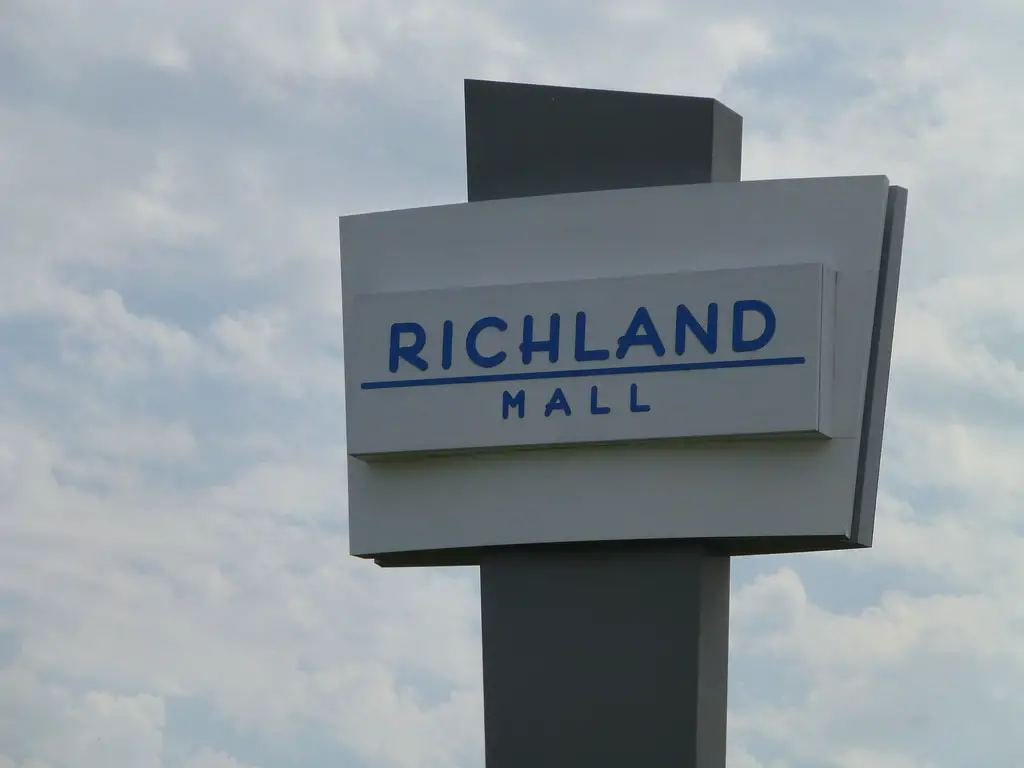
Changes in Anchor Stores
The late 1990s and early 2000s were notable changes for Richland Mall, especially among its anchor stores.
The Lazarus store underwent a series of rebrandings, initially becoming Lazarus-Macy’s in 2003 and then transitioning to Macy’s in 2005.
In 2006, Macy’s made a significant move, moving to the former Kaufmann’s site and leaving its previous location in the old Lazarus building.
These shifts in anchor stores indicated the changing dynamics in retail and consumer preferences.
Westfield Group Era
An important chapter in the mall’s history was its brief period under the Westfield Group’s ownership.
In 2002, the mall was renamed Westfield Shoppingtown Richland, aligning with Westfield’s global brand.
However, this rebranding could have been more successful. In 2006, following Westfield Group’s sale of the mall to Centro Watt, the mall reverted to its original name, Richland Mall.
This period marked a significant transition in the mall’s management and branding strategy, reflecting the fluid nature of the retail real estate market.
Financial Challenges and Ownership Changes
Financial Struggles
The mid-2010s brought financial challenges to the forefront for Richland Mall. In 2015, a judge ordered the mall’s sale after its then-owners, Centro Richland LLC, accumulated debts totaling $37 million.
This financial distress was a stark reminder of the volatile nature of the retail industry and the challenges large shopping centers face in adapting to changing market conditions.
Ownership Transitions
Ownership of Richland Mall saw several transitions in the following years.
According to records from the Richland County auditor’s office, Wells Fargo sold the property to Richland Mall Holdings LLC for $7.4 million in 2018.
This sale was a significant event, marking a new chapter in the mall’s history.
Despite the change in ownership, the mall’s management was retained, ensuring continuity in its operations and strategic direction.
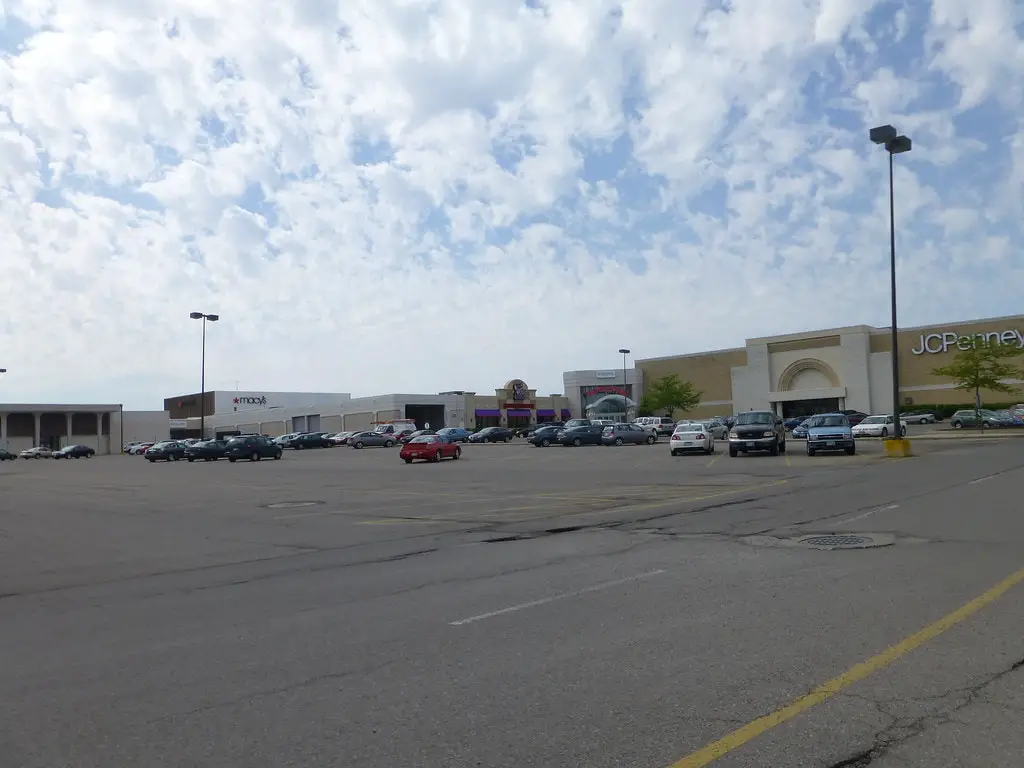
Recent Sales and Valuation
As of December 2023, Richland Mall in Mansfield, OH, a notable landmark in the retail landscape, is listed for sale, presenting a unique opportunity for redevelopment.
The property, located at 2209 Richland Mall, spans approximately 445,000 square feet and is now 40% leased.
With an asking price of $3,875,000, which translates to about $9 per square foot, the mall offers a 10.40% cap rate.
This valuation, a steep decline from the 2018 sale price, reflects the challenges and transformations in the retail sector, particularly in the context of shopping malls.
The two-story building sits on a 19.62-acre site and includes amenities like a food court, banking facilities, and a dedicated bus line.
The sale, managed by Marcus & Millichap, a renowned real estate brokerage firm, highlights the mall’s potential for transformation.
The property’s high visibility in a dense retail and residential corridor near US-30 and its proximity to national tenants like Walmart, Kohl’s, and Olive Garden underscores its significant redevelopment upside.
This listing marks a pivotal moment in Richland Mall’s history, opening the door to new possibilities and a reimagined future for this once-thriving shopping center.
The current state of the mall, with a significant portion of its space unleased, underscores the broader trends impacting brick-and-mortar retail spaces nationwide.
Tenant Evolution and Current State
Anchor Store Closures
The landscape of Richland Mall underwent significant changes with the closure of key anchor stores.
Sears, a long-standing retail giant, announced the closure of its Richland Mall location in 2019, marking the end of an era.
This was followed by the departure of Macy’s in April 2021 as part of a nationwide downsizing strategy.
These closures left JCPenney as the sole traditional anchor store, signaling a shift in the mall’s retail composition and the broader challenges department stores face in the modern retail environment.
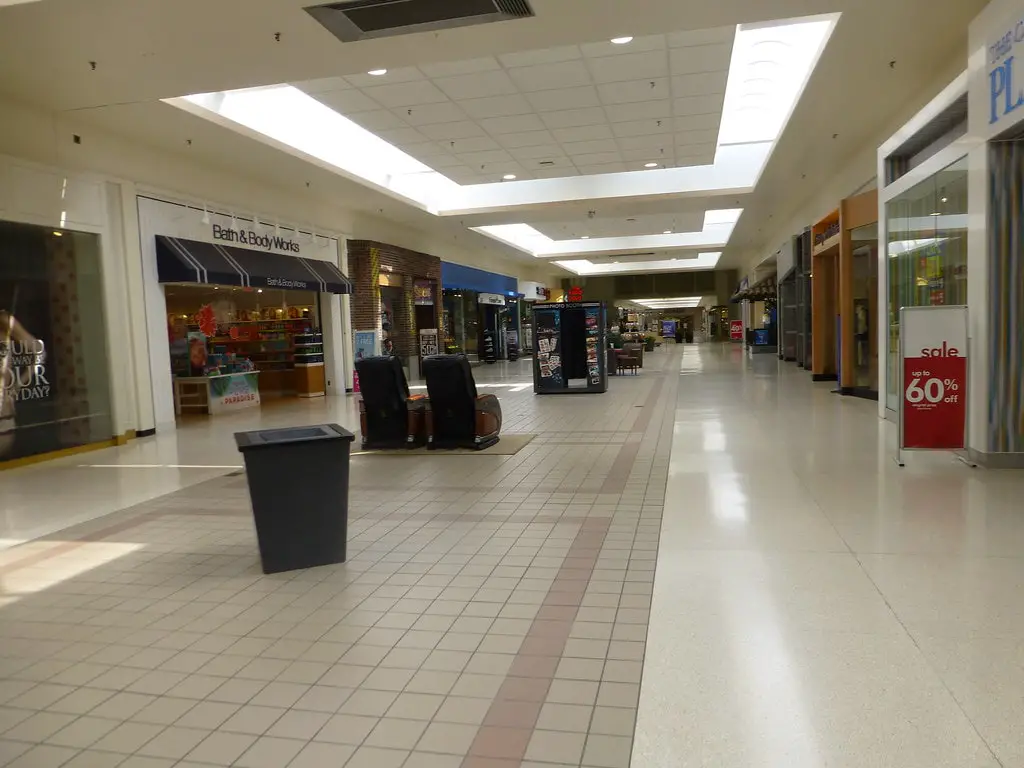
Impact of COVID-19
The COVID-19 pandemic further exacerbated the challenges for Richland Mall.
In 2020, Chuck E. Cheese, a popular family entertainment center and restaurant, closed its doors due to the financial strain caused by the pandemic.
This closure reflected the widespread impact of COVID-19 on the retail and entertainment sectors, highlighting the vulnerability of malls to external economic shocks.
Current Tenant Mix
Despite these challenges, Richland Mall houses a diverse mix of tenants.
As of 2023, the mall’s tenant roster includes a variety of specialty stores such as A Black Tie Affair, Action Mania Toys & Collectibles, and Addicted Boutique, among others.
The presence of Avita Health System adds a unique dimension to the mall, blending healthcare services with retail.
This eclectic mix of tenants illustrates the mall’s adaptation to changing consumer preferences and the evolving retail landscape.
Avita Health System’s Role
Conversion of Lazarus Store
Avita Health System’s acquisition of the former Lazarus store was a significant development in Richland Mall’s history.
In 2017, Avita transformed this space into a state-of-the-art hospital facility, spending over $70 million.
This innovative repurposing of retail space for healthcare services marked a departure from traditional mall configurations and reflected a growing trend in the adaptive reuse of commercial spaces.
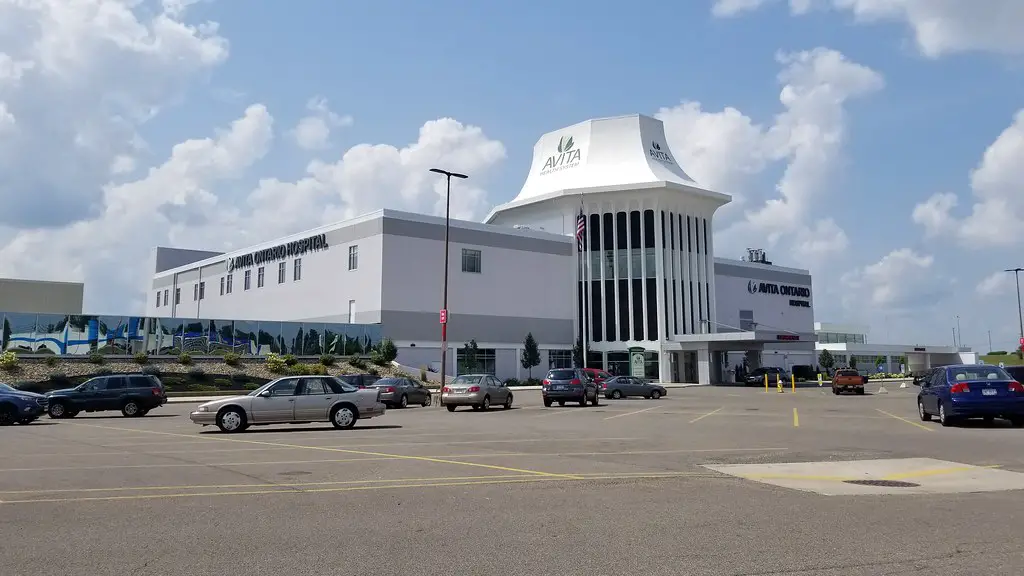
Expansion of Medical Facilities
Since its initial opening, Avita Health System has progressively expanded its facilities within the mall.
This expansion includes the addition of a 7-bed ICU, a 19-bed inpatient wing, a 16-bed pre/post-op area, four surgical suites, and a full-service cafe/kitchen.
These comprehensive medical services within a retail environment indicate the changing dynamics of mall spaces and their potential for diversification.
Impact on Mall Dynamics
The integration of Avita Health System into Richland Mall has significantly altered the traditional mall environment.
The presence of a full-service hospital within the mall premises has introduced a new customer base, including patients, healthcare professionals, and visitors.
This ripple effect on the mall’s tenant mix and foot traffic patterns demonstrates the potential for malls to serve as multi-functional spaces catering to a broader range of community needs.
Community and Cultural Impact
Mall as a Community Hub
Throughout its existence, Richland Mall has played a significant role as a community hub in Ontario and the greater Mansfield area.
Beyond its commercial offerings, the mall has been a venue for various social and cultural events, fostering a sense of community among residents.
From holiday celebrations to local gatherings, Richland Mall has been more than just a shopping destination; it has been a place where memories are made and traditions are formed.
Shift in Consumer Behavior
The evolution of Richland Mall reflects a broader shift in consumer behavior and retail trends.
The rise of online shopping and changing consumer preferences have significantly impacted foot traffic and the types of stores thriving in mall environments.
Like many others, Richland Mall has had to adapt, shifting from traditional retail anchors to a more diverse mix of tenants, including healthcare services and specialty stores.
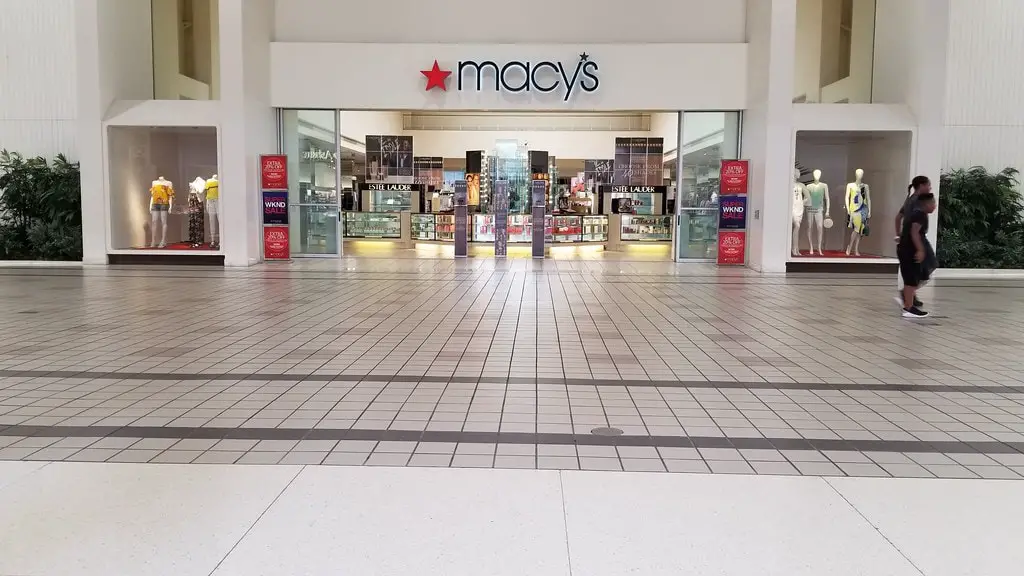
Future Prospects
Looking ahead, the future of Richland Mall remains an open question in the face of evolving retail landscapes.
The mall’s ability to adapt to changing consumer needs and market conditions will be crucial.
The potential for repurposing spaces for non-traditional uses, as seen with Avita Health System, may provide a blueprint for the mall’s continued relevance in the community.
Conclusion
Reflecting on the journey of Richland Mall, it’s clear that it has been a microcosm of the broader changes in the retail industry.
From its inception in 1969 as a bustling shopping center to its current state facing various challenges, the mall has experienced the highs and lows of the retail sector.
The closures of key anchor stores like Sears and Macy’s and the impact of the COVID-19 pandemic have marked significant turning points.
However, the mall’s resilience is evident in its ability to adapt and reinvent itself.
Avita Health System’s integration and its tenant mix’s diversification are testaments to this adaptability.
As Richland Mall stands at a crossroads, its future will likely depend on its ability to continue evolving and meeting the changing needs of its community.
In conclusion, Richland Mall’s story is not just about retail trends; it’s about its ability to navigate change and remain relevant to the community.
As the retail landscape continues to evolve, Richland Mall’s journey offers valuable insights into the challenges and opportunities facing shopping centers in today’s dynamic market.
